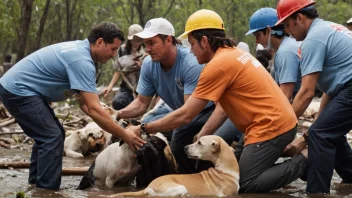Childhood is often seen as a time of innocence and joy, yet for many, it can be a period filled with trauma and adversity. The impact of childhood trauma extends far beyond the immediate emotional pain, influencing various aspects of adult wellbeing. Understanding these effects is crucial for fostering healing and resilience.
Research indicates that experiences of trauma during formative years can lead to a range of psychological and physical health issues in adulthood. Adults who have faced childhood trauma may struggle with anxiety, depression, and post-traumatic stress disorder (PTSD). The emotional scars left by traumatic experiences can hinder personal relationships, career growth, and overall quality of life.
One of the most significant areas affected by childhood trauma is mental health. Studies show that individuals with a history of childhood adversity are more likely to develop mental health disorders. This can manifest as difficulty in managing emotions, heightened sensitivity to stress, and challenges in interpersonal relationships. Furthermore, the stigma surrounding mental health can prevent individuals from seeking help, perpetuating a cycle of suffering.
Physical health is another critical aspect impacted by childhood trauma. Research has demonstrated a correlation between early trauma and a higher risk of chronic health conditions, such as heart disease, obesity, and diabetes. The stress response activated during traumatic events can lead to long-term changes in the body, affecting everything from immune function to hormonal balance.
Education and social support play vital roles in mitigating the effects of childhood trauma. Schools and community organizations can implement programs aimed at providing safe environments for children and teaching resilience skills. By fostering connections and offering resources, communities can help break the cycle of trauma. It's essential for adults affected by childhood trauma to seek supportive networks, whether through therapy, support groups, or community services.
Moreover, raising awareness about childhood trauma is key to creating a more empathetic society. Individuals can educate themselves and others about the signs of trauma and the importance of mental health. By promoting open discussions and providing support to those in need, we can help create a culture that values healing and understanding.
In conclusion, the impact of childhood trauma on adult wellbeing is profound and far-reaching. By acknowledging these effects, we can foster a more supportive environment for healing. Individuals can take steps to educate themselves and others, seek help when needed, and support community initiatives aimed at addressing childhood trauma. Together, we can work towards a future where the scars of the past no longer dictate the quality of life in the present.






